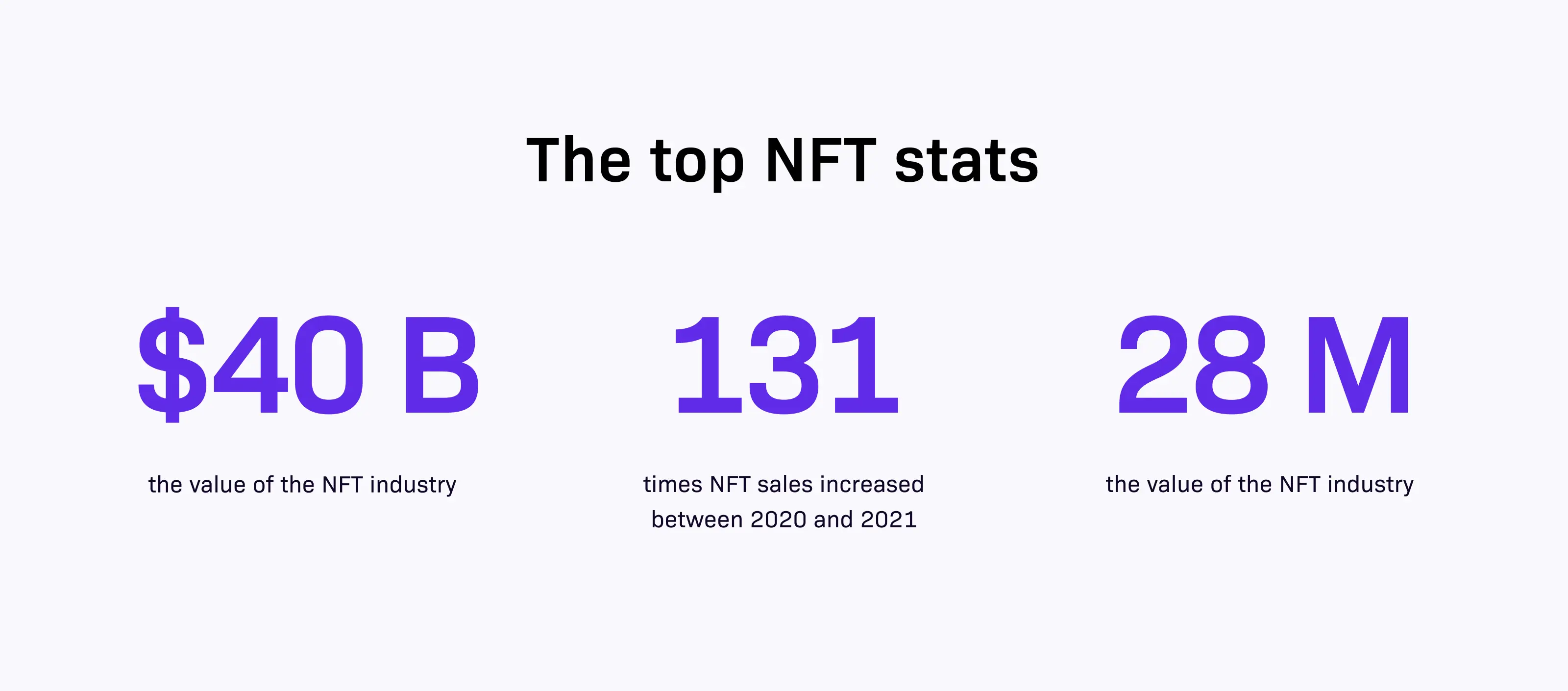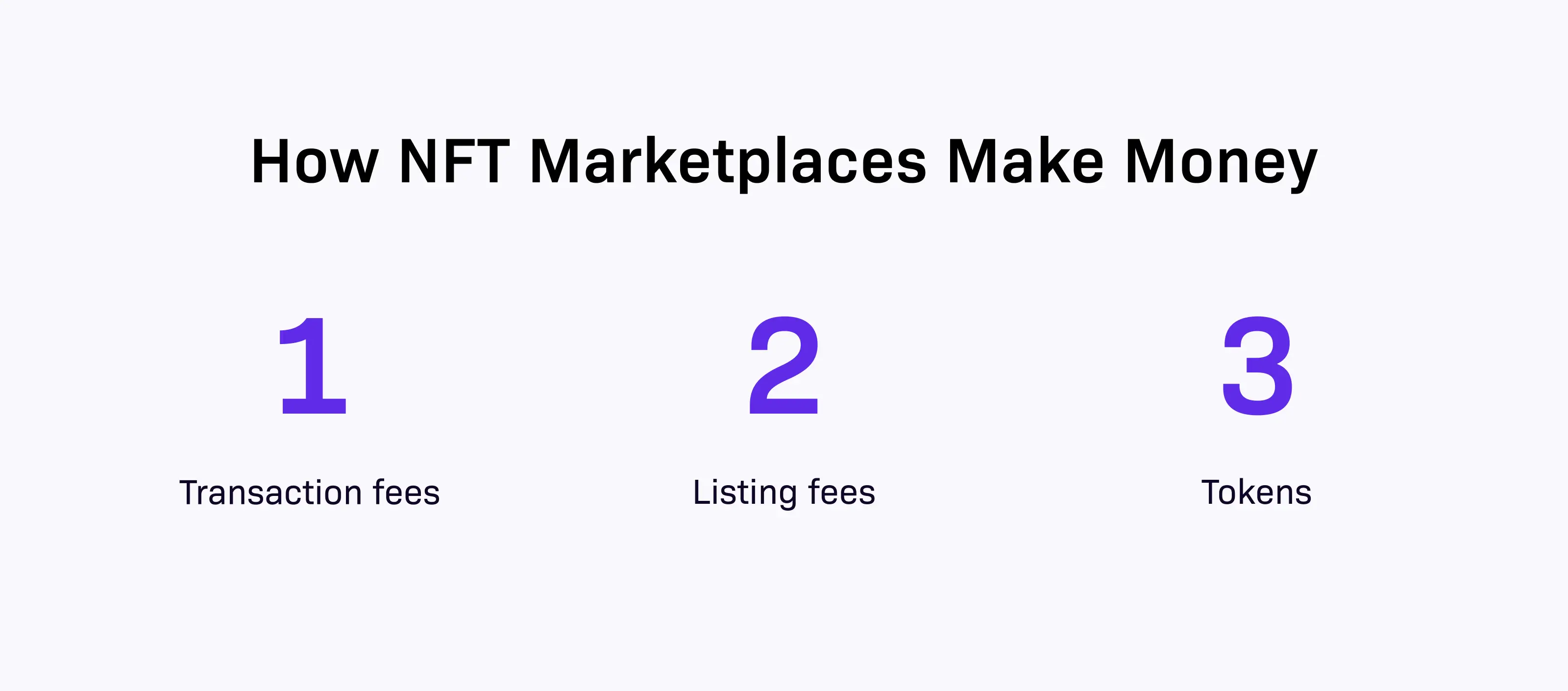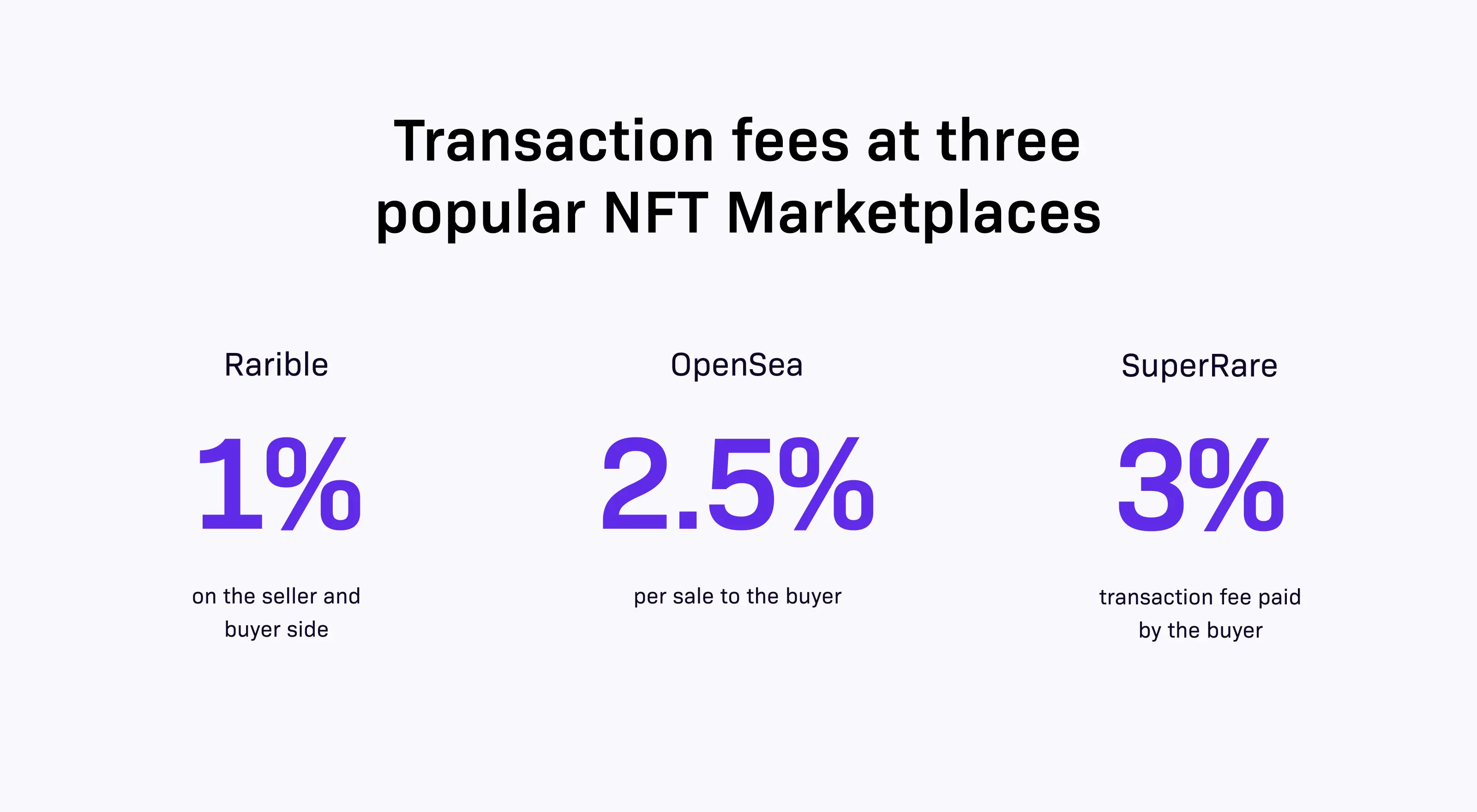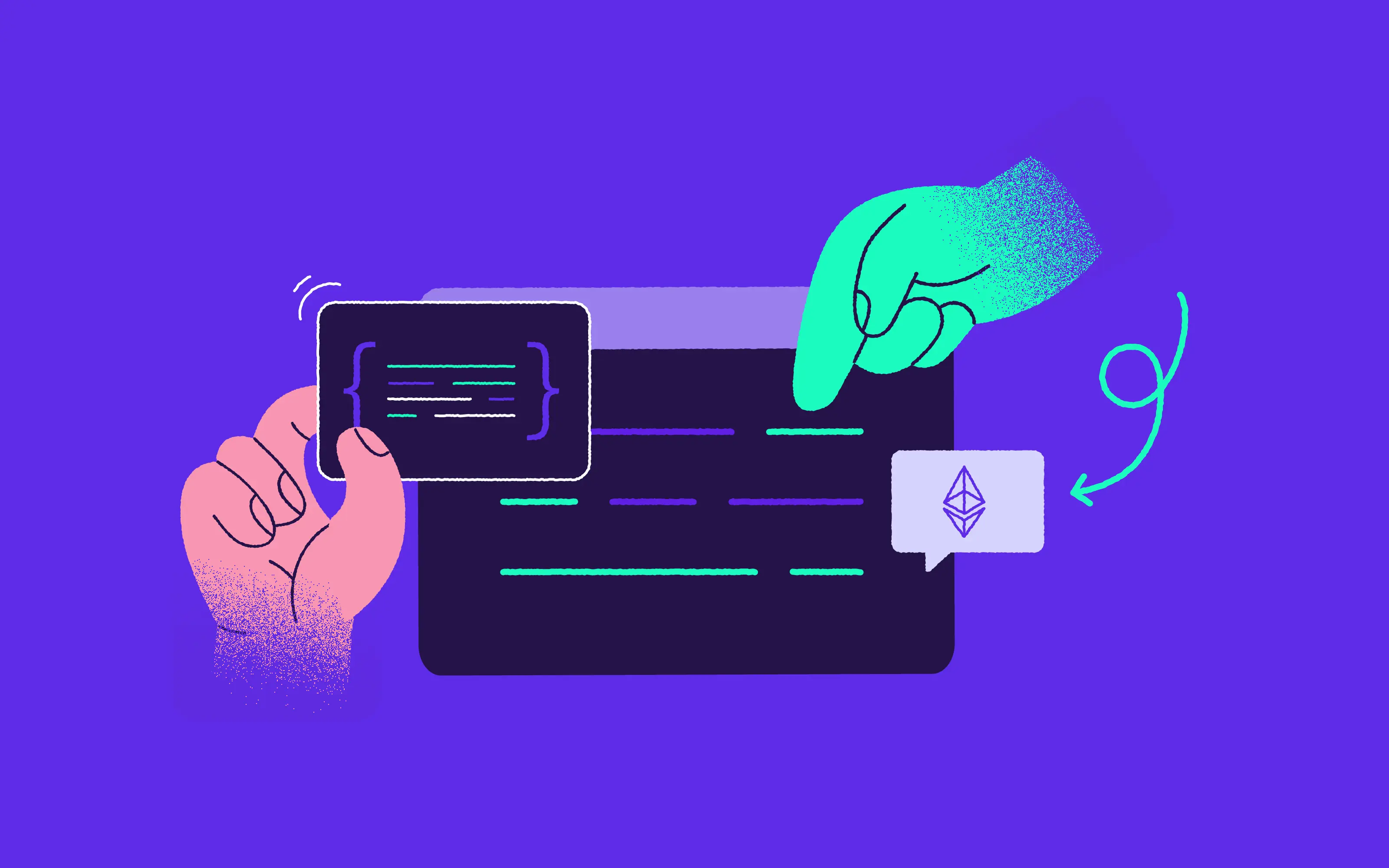
Even after all these years, a line from Jerry McGuire's 1996 movie never gets old. Rod Tidwell, played by Cuba Gooding Jr., expressed his dissatisfaction with Jerry McGuire's (Tom Cruise) job as his agent with the phrase "Show me the money!" But Jerry had a clear strategy for keeping Rod on board as his client. Obviously, by displaying the cash. Thinking of starting your own NFT Marketplace and making a profit may be done in the same way.
If you've ever wondered how NFT markets earn money, you've come to the correct spot. Regardless of if you've been thinking about starting your own NFT marketplace or just want to learn more about how existing markets perform, this article will lift the veil of secrecy. Before we go any further, let's have a look at the definition of the NFT marketplace.
It is basically a decentralized platform for trading non-fungible coins in an NFT marketplace (NFTs). An NFT is a work of digital art that may also be a game, an item of virtual currency, or even a piece of virtual clothing.
A conventional e-commerce platform where things are advertised by vendors and consumers who may either buy them directly or bid on them is the simplest analogy to make for an NFT marketplace. To conduct transactions NFT marketplace requires the use of a crypto wallet.

What is the Distribution Method for NFTs
The bulk of NFTs are traded on the Ethereum blockchain, despite the existence of other blockchains and markets for specialized NFTs.
New traders must go through the onboarding procedure to set up a profile and a crypto wallet or connect an existing one before they can begin trading on the marketplace. NFT listings are created by uploading digital materials that reflect your work to your account.
Alternatively, they may set up a bidding mechanism in which the highest bidder gets the piece of art. People who sign up for the marketplace may submit bids if a bidding mechanism has been implemented.
When an NFT is acquired, the marketplace delivers the assets and the relevant cryptocurrency to the appropriate crypto wallets through the marketplace. The same is true for the purchase NFT fractions. We explain the benefits and risks of fractional NFTs in a separate article.
How NFT Markets Earn Money
Transaction Fees
The issue is, how can NFT marketplaces' creators generate money in this process? NFT markets earn money by charging a transaction charge, much as regular marketplaces. Each sale typically contributes between 2% and 5% to this.
If you take into account the number of transactions, you'll quickly realize how profitable NFT marketplaces can be. In 2021, transactions equaling to nearly $24,9 billion in NFT transactions took place. In January 2022 alone, OpenSea earned $82 million.
Gas Fees
Additionally, some online markets charge a price for the use of gas. All NFT sales may be subject to a fee levied by an NFT platform. But it's important to know the difference between the gas fees that the network charges and those that the platform charges. For example, every Ethereum network transaction is accompanied with a fee that goes to miners who help power the network and keep it operational.
Listing Fee
In addition, sellers may have to pay a charge to post an NFT for sale on an online marketplace. For the simple fact that the platform agrees to distribute your idea, this becomes a commission. It's a safe bet that the more popular your NFT is, the more likely it is to be purchased. So the platform's authority is being used to generate revenue.
Tokens
Several NFT markets, such as Rarible and SuperRare, employ their own cryptocurrency tokens for governance or to reward consumers that use the marketplace or own NFTs.
These marketplaces' creators often have a substantial amount of tokens they may sell at any moment to create extra income. As a consequence, this kind of income generation isn't ideal, but it's the only option available to the company.
With all transactions recorded on the blockchain, setting up an NFT Marketplace may provide a high return on investment and zero risk. But where do you begin with the growth of your market?
An NFT marketplace solution created by 10CLouds incorporates a discovery phase to assist customers to identify their pain points and demands. It entails introducing the MLP, creating user flows for our NFT marketplace, creating the initial wireframes for the NFT marketplace, and evaluating the results.

Revenue Models of Various NFT Marketplaces
OpenSea
In the world of NFT trading, OpenSea is a household name. Its fame has been aided along by social networking, start-ups, and the video gaming industry. OpenSea allows you to list and sell your own NFT for nothing. ERC721 and ERC1155 assets are the primary focus of OpenSea. In this case, the vendor bears a 2.5% fee for OpenSea's services.
Rarible
Rarible charges a 1 percent seller's fee and a 1 percent buyer's fee. Rarible has a free minting option where the seller also pays for minting the NFT, but Rarible doesn't make money from minting because those fees go to crypto miners.
Raible also lets you buy some NFTs with a credit card, and they do make money from the fees charged by credit card companies.
SuperRare
All purchases made on this platform have a 3% transaction fee that is paid by the buyer. 15% of the sales price goes to the artist's gallery, and 10% of the sales price goes to the artist as royalty.

Final Thoughts
The NFT marketplace is the new and developing business model for crypto fans and businesses. It's due to the enthusiasm for NFT marketplaces from investors and creators. Your NFT marketplace may become a profitable business with a little luck, the appropriate strategy, and a skilled development team.
Looking for an expert team to help you create an NFT marketplace?
Get in touch with our Head of Sales, Dennis Van Der Vecht, for a free blockchain consultation at dennis.vandervecht@10clouds.com or +48 793 200 141.



